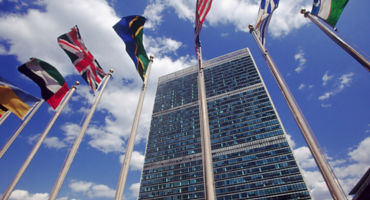On the geopolitical impacts
This military clash remains a geopolitical crisis of the highest order and has already transformed the global security environment in important ways.
First, the conflict has strengthened the US/transatlantic alliance across economic, political, and especially military dimensions. We didn’t see this degree of political unity during the previous US administration, but it’s now likely to continue beyond the current situation in Ukraine, as is a deepening transatlantic policy focus on national security. As has been demonstrated countless times in history, hostility and tragedy at this scale is clarifying to policymakers.
Second, the onset of the conflict prompted NATO to extend an invitation to Finland and Sweden. This speaks to the fact that the fighting in Ukraine has produced a new security environment across Europe — an institutionalized response that will likely constrain Moscow’s military options in Europe in the long term.
The clash in Ukraine has also resulted in large boosts in defense spending across Europe. This comes at a time when militaries around the world are modernizing their forces and assessing new technologies in use on Ukraine’s battlefields. While political unity in the EU will likely be a persistent challenge given differing domestic priorities, I suspect these defense spending increases and doctrinal military shifts are structural and will outlive the conflict’s end.
Last, but not least, the situation in Ukraine could impact China’s complex relationships with the US and governments across Europe.
I believe that prolonged fighting in Ukraine could lead to accelerated great-power competition among some of the world’s strongest countries, including (but not necessarily limited to) the US, China, and Russia. This could be particularly true if Moscow is seen as continuing to launch attacks against Ukrainian civilians and infrastructure, in addition to military targets.
It will also likely sharpen the political narrative in Washington that the world is splitting into “democracies and autocracies.” The resulting global geopolitical instability could add further fuel to deglobalization efforts rooted in strategic sectors on the front lines of great-power competition, including semiconductors, biotech, critical minerals, artificial intelligence, and quantum technologies, among other industries.
On the macro and market implications
Finally, the crisis in Ukraine is likely to produce several long-term macro and investment outcomes that will, in my view, outlive military action.












Monthly Market Review — August 2024
A monthly update on equity, fixed income, currency, and commodity markets.
By
Brett Hinds
Jameson Dunn